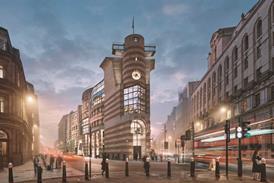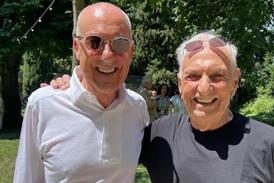- Home
- Intelligence for Architects
- Subscribe
- Jobs
- Events

2025 events calendar Explore now 
Keep up to date
Find out more
- Programmes
- CPD
- More from navigation items
Conservative Party conference: axe looms over HS2, ministers side-step awkward questions and business leaders despair

As row over country’s biggest infrastructure project escalates, Daniel Gayne reports on a downbeat mood in Manchester
Will he? Won’t he? Has he? Hasn’t he?
The construction industry and the nation at large have been waiting to know the prime minister’s decision on whether or not HS2 will be cut to a shuttle service between Acton and Aston.
And for a brief moment on Monday afternoon it seemed they had their answer when ITV’s Robert Peston reported that Rishi Sunak had made up his mind to cut the Manchester link and redistribute the money to other rail schemes in the north of England.
This content is available to registered users | Already registered?Login here
You are not currently logged in.
To continue reading this story, sign up for free guest access
Existing Subscriber? LOGIN
REGISTER for free access on selected stories and sign up for email alerts. You get:
- Up to the minute architecture news from around the UK
- Breaking, daily and weekly e-newsletters
Subscribe to Building Design and you will benefit from:

- Unlimited news
- Reviews of the latest buildings from all corners of the world
- Technical studies
- Full access to all our online archives
- PLUS you will receive a digital copy of WA100 worth over £45
Subscribe now for unlimited access.






